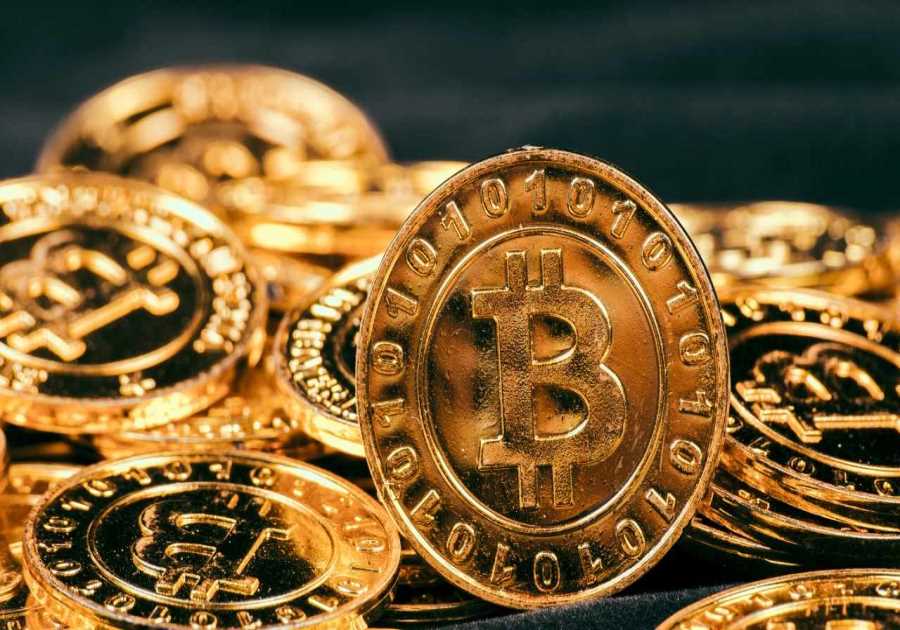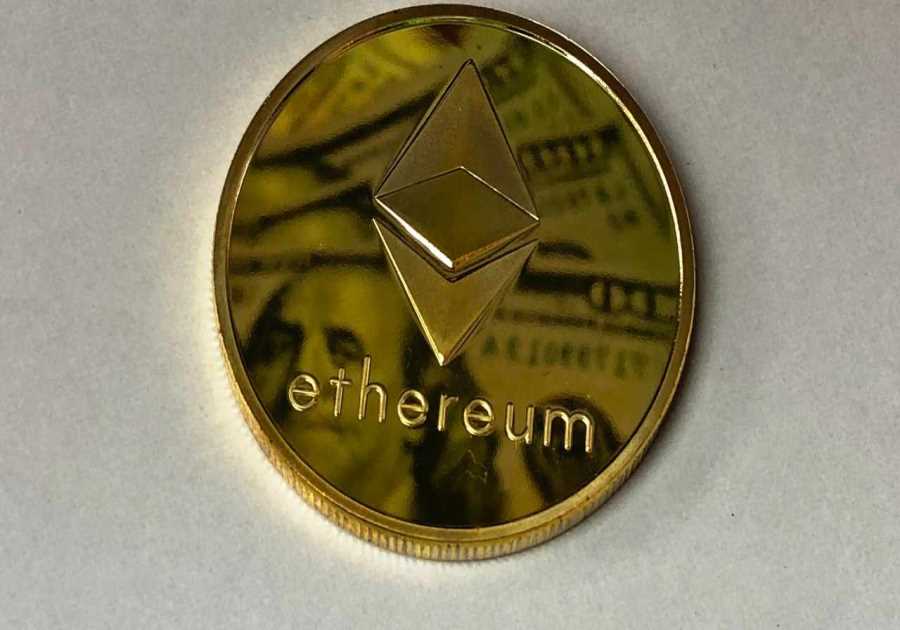Bitcoin introduced the world to decentralized money, free from government or bank control. Ethereum took things further with smart contracts, unlocking massive potential for developers. Then came Binance, building not just the world’s largest crypto exchange by trade volume—but also launching its own ecosystem and token, Binance Coin (BNB).
BNB is more than just another cryptocurrency. It powers smart contracts, offers trading fee discounts, supports NFTs and DApps, and keeps the Binance ecosystem running. Its fast-growing use cases make it a key player in the crypto space. In this guide, we’ll explain what BNB is, why it matters, and how you can get involved.
What Is BNB?
Binance coin or BNB is the native crypto asset of cryptocurrency exchange Binance that was specifically engineered to enhance trading and offer other benefits to the platform’s users. As the world’s largest cryptocurrency exchange by trade volume, Binance has made BNB an integral part of its entire ecosystem. Holders of the coin can also use it to invest and trade, further expanding its utility within the crypto space.
BNB’s success is primarily attributed to its connection to the Binance exchange and its multiple utilities within the ecosystem, including NFT marketplaces and the decentralized finance (DeFi) ecosystem, making it one of the most notable entities in the crypto market.
History of BNB and BSC
BNB, launched by Binance founder, Changpeng Zhao, as a token on the Ethereum blockchain in 2017 via an initial coin offering (ICO) at a price of $0.10, has grown to become one of the market leaders in terms of market capitalization.The aim was to create a token that would offer trading fee discounts on the Binance blockchain.
When Binance created its blockchain, Binance Chain, the developers moved BNB Coin there and made it the primary digital asset. The token moved once again in 2020, following the launch of Binance Smart Chain (BSC). This was a faster and more affordable network designed to support DApps and smart contracts. Later, in 2022, Binance renamed the new ecosystem the BNB Smart Chain.
Currently, the BSC ecosystem comprises chains, including the BNB Smart Chain, BNB Greenfield, BNB Beacon Chain, and opBNB. During their inception, the BNB Beacon Chain worked in tandem with the BNB Smart Chain in a dual-chain infrastructure. Beacon Chain played a role in ecosystem management through stakers and validators with voting rights on rules and regular updates.
What Is the BNB Chain?
BNB Chain is a decentralized blockchain network within the Binance ecosystem designed to cater to the Web3 economy and infrastructure. The protocol offers numerous advanced features and tools to users. It facilitates the exploration of DeFi applications while enabling developers to create large-scale decentralized applications (DApps).
Initially dubbed Binance Chain, BNB coin relocated from Ethereum blockchain in 2019 and became the native cryptocurrency of BNB Chain. The original BNB Chain now goes by the name BNB Beacon Chain, and Binance’s progress continued into 2020. Binance Smart Chain became BNB Smart Chain, a new network that ran parallel to BNB Beacon Chain. BSC has introduced advanced features and greater flexibility to the Binance ecosystem. They include EVM-compatible smart contracts, which have led to the explosion of DApps and related services.
BNB Chain vs. Binance Smart Chain: What’s the difference?
Source: Binance
Cryptocurrency users who may not be familiar with the distinction between BNB and BSC may use the terms Binance Smart Chain (BNB Smart Chain) and Binance Chain (BNB Chain) interchangeably, which could mislead beginners and other crypto enthusiasts. Nonetheless, the two serve entirely different purposes within the Binance ecosystem:
- Consensus Mechanism: The BNB Chain utilizes the Delegated Proof of Stake (DPoS) consensus mechanism, where a user who proposes a valid block becomes a validator. In contrast, the Binance Smart Chain employs the Proof of Staked Authority (PoSA) model, which requires users to stake their reputation and identity.
- Cross-chain Compatibility: BNB Chain and Binance Smart Chain may be independent of each other, but they share cross-chain compatibility. Because of their cross-chain compatibility, users can seamlessly transfer crypto assets between both chains, in addition to using decentralized exchanges or bridges to convert from one chain to the other.
- Smart Contract Functionality: While BNB Chain wasn’t designed to support smart contract functionality, Binance Smart Chain is specifically designed to take care of this limitation. BSC incorporates the Ethereum Virtual machine (EVM), meaning it supports Ethereum DApps and smart contracts.
- Gas Fees: BNB Chain is renowned for charging low trading fees, which makes it an attractive alternative for users seeking cost-effective transactions. Binance Smart Chain offers even lower gas fees among smart contract-enabled blockchains, making it appealing to users and developers.
- Use Cases: BNB Chain is popular for receiving and sending BNB, issuing new tokens, burning and minting, and creating trading pairs with other assets. On the other hand, Binance Smart Chain thrives on receiving and sending BNB and BEP-2 tokens, exploring transaction histories, staking BNB to earn block rewards, and becoming validators on BSC.
BNB Chain vs. Ethereum: What’s the difference?
While BNB and Ethereum may be compatible, the two vary in different areas, including the following:
- Transaction Speed: Ethereum-based transactions are typically slower due to network traffic, market conditions, and the amount of gas fees paid, with a typical processing time of 1 to 5 minutes. BNB transactions, on the other hand, are primarily processed in less than 5 minutes.
- Transaction Fees: With the average charge being just about $0.01 per transaction, the fees on BNB are lower than Ethereum, mainly based on the former’s faster consensus mechanism and enhanced network architecture. ETH fees can become exceptionally high during peak transaction periods when they can reach $100 or more per transaction, particularly when deploying complex smart contracts.
- Consensus Mechanism: The Ethereum blockchain transitioned from a Proof-of-Work (PoW) consensus mechanism to a Proof-of-Stake (PoS) consensus mechanism following “The Merge” in 2022, enabling users to participate in validation through staking ETH. BNB, on the other hand, uses Proof of Stake Authority (PoSA), which is a combination of Proof of Stake and Proof of Authority that facilitates BNB staking, faster speeds, and lower energy consumption.
- Scalability: Ethereum has consistently faced scalability challenges, with its throughput averaging 13-15 transactions per second, compared to BNB, which offers better scalability with an average of 40 transactions per second and a potential to exceed 1500 TPS.
- Use Cases: BNB evolved from its initial intention as a transaction fee token for the Binance exchange into a multi-purpose asset fueling the entire BNB Chain, facilitating token sales and purchases on Binance-related platforms. On the other hand, Ethereum started as a “World Computer” capable of running various applications and has now evolved to cater to more advanced uses, including NFTs, DeFi, and other related applications.
How Does the BNB Chain Work?
BNB Chain operates as an open-sourced, permissionless, community-first blockchain. The platform allows anyone with technical knowledge to participate in the network where all records are transparent and public. The developers’ goal was to create an infrastructure that would expedite the adoption of blockchain and cryptocurrency technologies.
1. Proof of Staked Authority (PoSA)
BNB Chain utilizes the Proof of Staked Authority (PoSA) consensus model, which combines elements of Proof of Stake (PoS) and Proof of Authority (PoA) mechanisms to achieve higher transaction speeds and lower network fees. PoSA is specifically designed to combine the strengths of both mechanisms to create a hybrid system.
2. Validators
The Proof of Staked Authority consensus model relies on validators chosen by BNB stakers. They play a critical role in creating and validating blocks on the BNB Chain, and they receive BNB transaction fees as a reward. The PoSA model provides instant finality, enabling validators to confirm transactions in real time and include them in a block. A validator must fulfill staking requirements by holding a certain number of tokens and be a trusted participant within the network.
3. Transaction Fees
Transaction fees for BNB Chain transactions are paid in BNB Coin, and they are relatively low compared to other blockchains. The fees are used to reward validators whose responsibility is to secure the network and validate transactions. The amount payable is based on various factors, including network congestion and transaction complexity.
4. Burn Mechanism
The BNB Coin burn is typically a highly anticipated event, as it serves as an essential element in Binance’s long-term strategy. This includes enhancing the token’s utility and value. The process involves a commitment to build scarcity-driven appreciation, enabling the ecosystem’s stability. It involves permanently removing a portion of BNB tokens from circulation, reducing its total supply and potentially increasing its value.
5. Ethereum Virtual Machine (EVM) Compatibility
Due to its universal language that facilitates the creation of DApps on nearly any blockchain, EVM compatibility has become an integral feature of many emerging blockchains. That’s because EVM compatibility enables smart contract support without requiring any significant modifications, resulting in reduced effort and development time.
6. Smart Contracts
DApp developers can leverage the platform’s smart contract support feature to create automated interactions between DApps and users. BNB Chain-based smart contracts use a universal programming language that makes them compatible with other blockchains, leading to cross-chain interoperability. The designers have optimized the network to handle larger transaction volumes and made it competitive.
7. Decentralized Apps (DApps)
BNB Chain is home to numerous decentralized applications (DApps), such as lending platforms, decentralized exchanges (DEXs), social media platforms, and NFT marketplaces. Some of the most famous DApps include decentralized exchanges (DEXs) like PancakeSwap and a money market protocol called Venus.
8. NFTs
BNB Chain users can enjoy a hassle-free experience minting NFTs of all kinds for whatever purpose, whether they’re giveaways or they intend to sell them on NFT marketplaces. The BNB Chain facilitates the creation of NFTs in different file formats, including JPG, PNG, GIF, WEBP, MP4, or MP3.
9. Tokenization
Tokenization of property into Real World Assets (RWAs) is a recent trend in the blockchain space. It offers an efficient and secure method for managing and exchanging value digitally. BNB Chain offers an easy-to-use tokenization method allowing individuals, entrepreneurs, and small business owners to turn their assets into digital tokens.
Advantages & Disadvantages of BNB Coin
Most people tie the popularity of BNB Coin to its connection with Binance, the world’s most well-known cryptocurrency exchange. However, every successful entity can have its fair share of challenges. The following are the advantages and disadvantages of BNB Binance you may need to know about and appreciate:
Advantages
- Lower Transaction Fees: Reduced transaction fees remain among the most significant advantages of BNB when used on the Binance exchange, as users enjoy massive discounts by keeping the token in their wallets.
- Utility Token: As a native token on the platform, BNB facilitates different use cases, including paying for trading fees, booking hotels, and participating in token sales.
- Faster Transactions: BNB Coin transactions are fast due to Binance Blockchain’s high throughput potential, making it ideal for quick and efficient transfers.
- Binance Launchpad: BNB holders have a chance to get early exposure to investment opportunities and token sales via the Binance Launchpad.
- Decentralized Exchange (DEX) Integration: BNB Binance is used as gas fees in most DeFi and DApps platforms.
- Strong Community Support: BNB has a strong and active community that helps drive development and adoption.
- Token Burns: By conducting periodic token burns that remove a portion of BNB coins from circulation, the platform uses this deflationary mechanism to help build the token’s value over time.
Disadvantages
- Centralization Concerns: While most people associate BNB’s success with its association with cryptocurrency exchange Binance, the platform’s centralized nature has consistently raised concerns about the token’s decentralization, with many fearing its fate should the platform face regulatory breaches or challenges.
- Market Dependency: The value of BNB is highly dependent on the reputation of the exchange, creating a precarious situation in the event of adverse events affecting the exchange.
- Limited Use outside Binance: Outside the crypto exchange, BNB is yet to build more use cases compared to other cryptocurrencies.
- Price Volatility: BNB’s value can be affected by constant fluctuations, like all other cryptocurrencies.
- Regulatory Risks: The regulatory landscape surrounding the cryptocurrency space is ever-evolving, which could pose challenges to the growth of BNB coin.
What is BNB Used For?

Source: Coolwallet
While the BNB Binance token was initially created to offer discounts on Binance exchange trading fees, it has soon evolved to serve several other purposes within the Binance ecosystem and beyond. These include payments, facilitating token sales, and supporting various DApps, games, and liquidity provision. Below are among the primary uses for BNB Coin:
DeFi
The BNB token is the fuel that fires the BNB Chain DeFi platforms, with among the leading use cases being the following:
- Transaction Fees: Users must hold BNB to cover their transaction fees when interacting with the BNB Chain network.
- Exploring DApps: BNB Holders can use the token to pay transaction fees in over 5,000 DApps supported by the network, including finance, games, and NFTs.
- Earn Through DApps: Most DApps supported by the network offer earning and yield farming opportunities in which rewards are paid using BNB or other compatible tokens.
- Staking and Governance: Holders of BNB Coin can stake their coins to help secure the network and validate transactions, earning passive income in return. Stakers are also able to undertake governance duties such as voting for the network’s future direction.
- Liquid Staking: The Binance Chain ecosystem enables staking through derivatives like slisBNB and clisBNB, offering users increased APY through various incentives. By investing LSTs in other DeFi platforms, users can maximize their returns.
- Restaking: Holders of BNB can restake their Liquid Staking Tokens (LSTs), such as slisBNB, via restaking protocols to generate additional yield.
- Decentralized Exchange (DEX) Fees: Users need to hold BNB Coin to interact with supported DEXs, such as PancakeSwap when paying transaction fees.
CeFi
Besides being an integral part of the decentralized finance ecosystem, BNB is also helpful within the centralized finance arena with some of the following CeFi activities:
- Trading Fee Discounts: If you hold a BNB coin, you get to enjoy trading fees on cryptocurrency exchange Binance, which can translate to sizeable savings based on transaction volumes over time.
- Exclusive Token Sales: BNB Coin is the token of choice on the BNB LaunchPad, providing holders with advanced exposure to blockchain projects before they are launched to the public.
- Liquidity and Lending: With Binance Liquid Swap, BNB holders can pool their resources to provide liquidity to lending protocols and earn yield from that. Moreover, they can also lend tokens directly via Binance Launchpool and earn more rewards supporting new projects.
- BNB Vault: BNB holders can stake their tokens on different Binance products using the BNB Vault yield aggregator. The most common of these include Binance Launchpool and Simple Earn Flexible.
- Promotions: BNB holders are eligible to benefit from various promotions, including slisBNB and clisBNB, as well as Megadrop and HODLer Airdrop.
PayFi
Payment Finance, or simply PayFi, refers to the integration of blockchain technology with real-world payment solutions to provide instant settlement for transactions. BNB is already playing a role in enabling PayFi cases, enabling fast, secure, and affordable transactions:
- Shopping and Spending: Binance Pay facilitates online shopping using BNB, enabling users to make seamless payments for goods and services on a growing number of e-commerce platforms, including Shopify and others.
- Travel and E-commerce Payments: BNB is being used by platforms like Travala.com for payments to hotels, flights, and other platforms that accept BNB payments for real-world digital transactions.
- Entertainment and Services: BNB holders can participate in P2P games and other entertainment activities that Binance blockchain hosts for a chance to earn BNB rewards.
- Financial Services: BNB Coin powers a range of financial services, including loans, investments, and payment services utilizing BNB.
Where to Get Binance Coin (BNB)?
If you’re wondering where to buy BNB, the truth is that you can acquire the token through various means. They include centralized exchanges like Binance, Coinmama, and Coinbase or several peer-to-peer services. Below are some of the most straightforward ways to get Binance coin:
1. Wallets
With a crypto wallet like Trust Wallet, you buy BNB Coin using fiat currency or Debit/Credit card directly from exchanges. There are also third-party payment processors in addition to trading it with other digital assets on the Binance Exchange. Your first course of action, therefore, is to download a crypto wallet that supports BNB Binance. Your first course of action, therefore, is to download a crypto wallet that supports BNB Binance.
2. Centralized Exchanges (CEXs)
You can buy BNB tokens from the Binance Exchange or any other centralized exchange (CEX) that supports the platform. BNB exchange offers a wide variety of trading pairs for BNB at very reasonable rates compared to other centralized exchanges.
3. Earn BNB
You can earn free BNB by working for crypto-paying companies or by being an onchain scout for potentially harmful bugs. You may join the Simple Earn program and qualify for more rewards from mechanisms like Launchpool, Megadrop, and HODLer Airdrop. These enable users to maximize their BNB earnings and earn rewards locking BNB and completing Web3 quests or retroactive rewards.
4. Receive BNB from Your Peers
You may also want to receive BNB tokens from peers by sharing your cryptocurrency wallet with them. Alternatively, you could use the Binance P2P (peer-to-peer) service to receive BNB coins directly to your wallet address from other users via different payment methods.
5. Staking Rewards
You can earn Binance Coins as staking rewards by setting aside BNB Coins and locking them on the Binance exchange. You may also pay a delegate to stake the coins on your behalf, acting as a validator on BNB Chain. By staking your BNB tokens, you contribute to the BNB Chain ecosystem by acting as a validator node. You get paid in BNB tokens as a reward.
6. Decentralized Exchanges (DEXs)
There are various decentralized exchanges (DEXs) that are compatible with the BNB Chain, from which you can buy BNB coins. All you need is a compatible Web3 wallet like MetaMask to connect with the DEX to trade cryptocurrency for BNB. There are many other DEXs on the Binance Chain that you can acquire BNB from.
How to Purchase BNB in 2025
Binance coin currently ranks among the top five cryptocurrencies by market capitalization. This shows that it’s gone on to become one of the most valuable digital assets in the market. The best place to buy BNB in 2025 is a cryptocurrency exchange where you’re assured of security and competitive pricing.
Buying BNB
- Step 1: Choose a Platform: You can choose a Centralized Exchange (CEX) like Binance, Coinbase, KuCoin, or any other after carefully considering factors like security, transaction fees, and the payment methods they accept. If you prefer, you may also try a wide range of Decentralized Exchanges (DEXs), such as PancakeSwap, among others.
- Step 2: Create an Account and Verify: Visit your preferred platform or download their App and register to create an account. If you choose a CEX, you’ll most likely be asked to verify your identity by completing a KYC process.
- Step 3: Deposit Funds: Most exchanges today allow you to deposit fiat currencies via debit/credit card or bank transfer. Alternatively, you may deposit another cryptocurrency to buy your required BNB.
- Step 4: Buy BNB: Once you’ve made the required deposit, navigate the App or platform to the trading section and choose BNB as the asset you want to buy; select your preferred payment method or trading pair, enter the amount of BNB you wish to purchase and confirm the order.
- Step 5: Withdraw or Store BNB: Once you receive your BNB in your exchange wallet, you can keep it there briefly if you want to trade immediately. However, if not, withdraw and transfer it to your wallet for long-term storage, preferably a hardware wallet.
Selling BNB
If you have some BNB that you want to sell for any reason, the process is also simple. Below is the step-by-step procedure:
- Step 1: Select Your Blockchain Network: Begin by selecting the blockchain you intend to use to sell your BNB tokens, starting with Binance or any other that offers you the flexibility that suits you.
- Step 2: Enter Amount of BNB: Navigate the platform’s interface, and once you get to the trade section, select “SELL” and input the amount of BNB you wish to sell. The platform will indicate the amount of fiat currency you’re going to receive.
- Step 3: Complete KYC Verification: If the chosen platforms adhere to most regulations, you’ll need to complete the required KYC verification, which may also depend on your region.
- Step 4: Choose the Fiat Payout Method: Enter your card information or bank details to specify where you want your payment sent. Double-check to ensure you entered the correct information.
- Step 5: Confirm Transaction: Review the entered details, and once you’re satisfied, click “Confirm.” Transfer the specified amount of BNB to the crypto address and wait for your fiat currency within a few minutes.
How to Store BNB
There are different ways to store and secure your Binance Coin, but as much as possible, consider using a hardware wallet like Trezor or Ledger for maximum security if you’re keeping your tokens for the long term. You may also consider a secure software address like MetaMask or Trust Wallet for the convenience of trading. The following is a breakdown of the best way to secure your tokens:
- Hardware Wallets: Also known as cold wallets, hardware wallets, such as Ledger or Trezor, remain mostly offline, meaning they’re resistant to malware and hacking. They also offer a wide range of security protocols, making them an ideal choice for long-term BNB holdings.
- Software Wallets: Also known as hot wallets, software wallets are popular for their convenience, particularly when you want to get involved in trading or using your tokens for making payments. Consider secure wallets like Trust Wallet and MetaMask that also facilitate interaction with DApps on the BNB Smart Chain.
- Binance Exchange: If you’re a frequent user, like a trader, you may consider the Binance Exchange Integrated wallet. However, for an added layer of security, you may need to enable two-factor authentication in addition to using a strong password.
- Important Considerations: Regardless of the storage method you choose for your BNB tokens, it’s essential to have a secure backup for your wallet’s seed phrase, in addition to always double-checking the URLs to ensure you’re using genuine websites and not counterfeits.
- Private Keys: Remember that when it comes to self-custody wallets, you’re solely responsible for your private keys and the security of your digital assets.
The Future of BNB Coin
The future of BNB heavily depends on the growth of the Binance ecosystem, continued adoption, and the outcome of ongoing global regulatory developments. With the platform currently developing an L2 solution and the ongoing migration of many functionalities from the aging Beacon Chain to the BNB Smart Chain, the future looks promising.
Binance will have to work hard to address security issues and reduce scams, as the platform has previously been a victim of scammers. While BNB may face some regulatory and other challenges, competition from other emerging cryptocurrencies could pose a significant threat, as well as the impact of emerging market sentiment and the token’s overall resilience.
Conclusion: Is BNB a good investment?
BNB has demonstrated the potential to increase its utility within the Binance ecosystem and beyond. The ongoing adoption of Binance and the technology behind its blockchain, alongside developments within its decentralized applications (DApps) and decentralized finance (DeFi) applications, demonstrates the token’s potential to play a significant role in the future of cryptocurrencies. The expanding ecosystem sets a solid foundation for BNB’s long-term demand, making it a good candidate for a reliable long-term investment.
Additionally, Binance Coin’s position among the top five cryptocurrencies by market capitalization underscores the growing investor confidence, supported by the token’s widespread adoption and diverse use cases. While the broader crypto market remains mostly volatile, experts consistently give BNB a bullish outlook, with many indicators showing an emerging positive momentum. However, every investor should stay vigilant and make a careful assessment of the market, weighing potential risks and rewards before making a long-term BNB investment.
FAQs
Where to buy BNB safely?
You can buy Binance coins safely using your Debit/Credit card from a growing number of reputable and trusted centralized crypto exchanges, including Binance, Coinbase, or Coinmama. You must create a BNB wallet and open an account before you can make a purchase.
How much is $1 dollars in BNB?
According to CoinGecko, BNB current price is BNB . This means that 1 USD equals around 0.001 BNB.
Is BNB also Bitcoin?
Binance Coin or BNB is not the same as BTC (Bitcoin). Bitcoin is the first cryptocurrency that operates on its blockchain, whereas BNB is a crypto asset that runs on the Binance blockchain and serves as the native coin of the BNB Chain ecosystem. While both are cryptocurrencies, they serve different purposes.
Why is BNB so popular?
The popularity of BNB stems from the fact that it is associated with the world’s leading cryptocurrency exchange by trade volume. Additionally, the token plays an integral role in securing and maintaining the BNB Chain. Cryptocurrency enthusiasts are drawn to the token due to its potential to generate passive income and offer staking rewards. Moreover, BNB holders have access to an entire library of lucrative crypto projects created on the BNB Smart Chain.
Who created Binance Coin (BNB)?
Binance Coin (BNB) is the brainchild of the cryptocurrency exchange founded by Changpeng Zhao. The token was launched in 2017 as a means of facilitating trading fee discounts on the Binance platform, but it has since evolved to include many other utilities.
The post What Is Binance Coin (BNB) and How Does it Work? appeared first on NFT Evening.
Read MoreBy: Amit Chahar
Title: What Is Binance Coin (BNB) and How Does it Work?
Sourced From: nftevening.com/what-is-bnb/?utm_source=rss&utm_medium=rss&utm_campaign=what-is-bnb
Published Date: Sun, 10 Aug 2025 09:25:31 +0000
----------------------------
Did you miss our previous article...
https://trendingincrypto.com/nft-news/spartans-global-reach-instant-crypto-payouts-and-massive-game-collection
.png)





